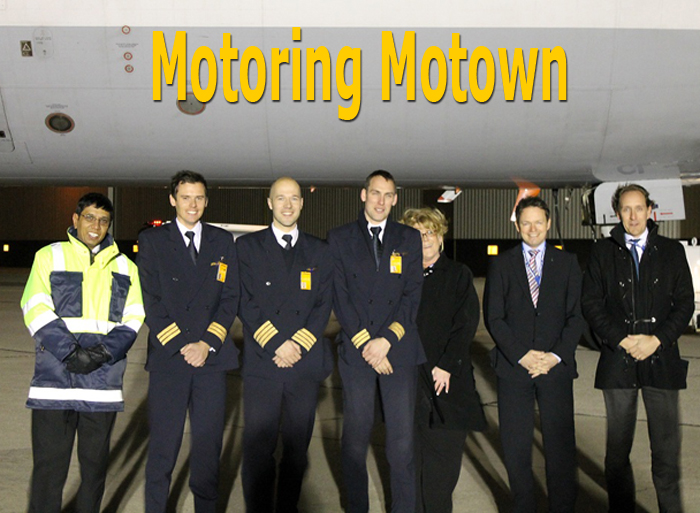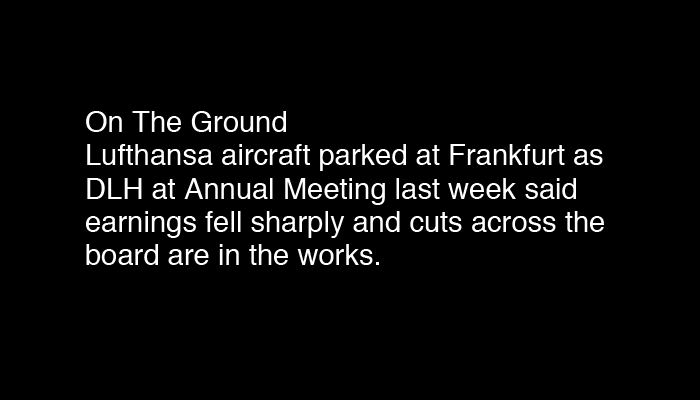
Celebrating the inaugural, from left to right
at the inaugural: Vishal Bhatnagar, Head of Operations and Processes
The Americas, Michael Schult, First Officer, Mark Beppler, Captain
Ulrich Helkamp, First Officer, Donne Gerke, Manager Detroit,
Achim Martinka, VP The Americas, Dieter Vranckx, GM USA Midwest
and Canada.
For more than 10
years there were no freighter flights from any airline to DTW
(except FedEx and UPS), until January 23, when Lufthansa Cargo
began flying every Monday evening. And now that March is here,
the frequency occurs twice weekly.
Lufthansa Cargo celebrated the
inaugural MD11F flight with authorities from the airport and
their customers, including Central Global, CEVA, Corrigan, DHL,
Emo Trans, Expeditors, K&N, Mach 1, Panalpina, Phoenix,
DB Schenker, and UTi.
Achim Martinka, Vice President
The Americas, says that this is a perfect service for the industry
in the Detroit area, especially for the automotive industry:
“We see a lot of goods being
sent from Detroit to the different hubs in the US before being
sent to Europe. We hope to attract some of these to our flights
out of DTW.”
The flight stops in JFK on its
way to FRA and was also set up due to the high import-demand
directly into DTW out of Europe, the major markets being Germany
and Italy.
Lufthansa Cargo runs a Global
Partner Program for its key customers. Forwarder members of
the program are: Agility, CEVA, DHL Global Forwarding, Expeditors,
Hellmann, Kühne+Nagel, Panalpina, DB Schenker, UPS, and
UTi.
Lufthansa Cargo also announced
a new partner program member—Dachser —that joined
this year.
Ted
|
|





